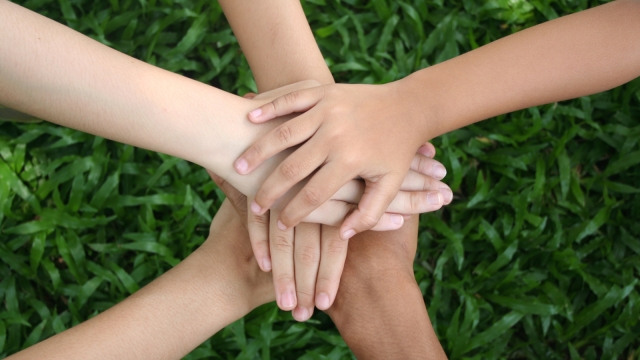Mental Health Awareness Takes More Than Just One Month

As Mental Health Awareness Month comes to a close, let’s encourage young people — and especially LGBTQ youth — to speak openly and honestly about their mental health. A recent survey of LGBTQ youth by HRC and the University of Connecticut’ reaffirmed that, sadly, mental health disparities between LGBTQ youth and non-LGBTQ youth continue to widen, an alarming trend that we must work together to address.
Today’s LGBTQ youth continue to face a variety of stressors—harassment, family and peer rejection, bullying from their peers, isolation and a lack of a sense of belonging—that have a major impact on their overall well-being. Studies have shown that, compared to their non-LGBTQ peers, LGBTQ youth report much higher rates of depression, anxiety, alcohol and drug use, and lowered self-esteem.
Eighty-five percent of thosesurveyed for HRC’s LGBTQ youth report rated their average stress level a ‘5’ or higher on a scale of 10 where ‘10’ was very stressed and ‘1’ was not stressed. This includes 14 percent of respondents who rated their average stress level as a ‘9’ or higher.
Many respondents described feelings of isolation and anxiety about seeking support for their mental health needs:
“In freshman year I spoke to one of my counselors about my depression and anxiety, but I don’t think they’re trained in helping LGBTQ+ kids.”
“The counselors at my school have never said whether we can come to them about LGBTQ subjects or not. So you really don’t know if they are well educated about the LGBTQ community…”
“A stranger, even a school counselor, is very dangerous to LGBTQ+ people and children. They can ruin your entire life, get you kicked out of your home by your parents, or make other teachers treat you awfully and make your school experience miserable. They can even get you killed by outing you without your permission, which they are usually ‘expected’ to do.”
Access to culturally-competent, LGBTQ-affirming mental health providers both within schools and in the broader health care system is essential to the well-being of LGBTQ teens. Every mental health and medical professional can play a role in changing the landscape for LGBTQ youth by reinforcing inclusive, supportive and loving environments in homes, schools and communities.
We must use Mental Health Awareness Month as a catalyst to start having open, honest discussions about mental health with young people, a key step to reducing stigma and empowering them to seek help and support when needed. And we must continue to chip away at the bias, discrimination, and rejection that place LGBTQ youth at high risk of compromised mental health.
If you or someone you know are in need of help or assistance, contact The Trevor Project, which runs phone and text chat support lines specifically for LGBTQ youth.
To read the full results of the 2017 LGBTQ Teen Survey, check out hrc.im/YouthReport.
You Might Like
